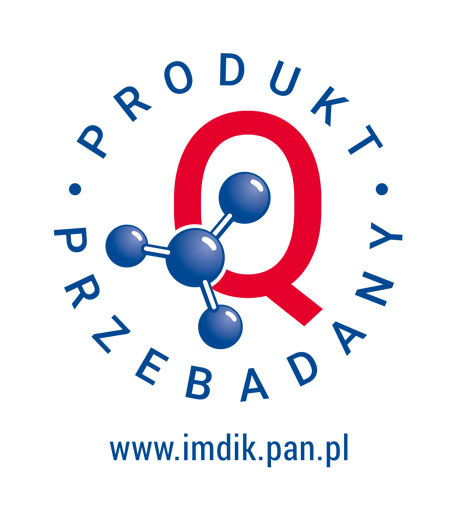Seminarium „Art of Culturing – Collaboration” organizowane przez Merck Life Science 11 marca w Warszawie.
Wydarzenie powstało z myślą o osobach pracujących zliniami komórkowymi, modelami 2D / 2.5D / 3D oraz nowoczesnymi narzędziami do badań biologicznych.
Podczas spotkania połączymy praktyczną wiedzę, prezentacje technologii oraz przestrzeń do rozmów i wymiany doświadczeń z innymi naukowcami.
W programie m.in.:
• Dobre praktyki hodowli komórkowych (GCCP) – jak uniknąć najczęstszych błędów
• Modele 2.5D oraz przegląd modeli 3D w badaniach biologicznych
• Narzędzia i rozwiązania Corning wspierające nowoczesną hodowlę komórkową
• Od jednego koloru do pełnego spektrum – cytometria przepływowa w praktyce
• Woda w laboratorium – dlaczego zawsze ma znaczenie?
• Dobre praktyki pracy z inkubatorami
• Organoidy w praktycznych zastosowaniach
• Biomarkery w hodowli komórkowej – co i kiedy analizować
• …i wiele innych praktycznych tematów związanych z codzienną pracą laboratoryjną
Formularz rejestracji:
REJESTRACJA na seminarium Art of Culturing – Wypełnij formularz
NEURONUS 2026 & Young PTBUN Neuroscience Forum
24–26 kwietnia 2026 r.
Auditorium Maximum Uniwersytetu Jagiellońskiego w Krakowie
NEURONUS Neuroscience Forum należy do największych i najbardziej rozpoznawalnych wydarzeń neuronaukowych w Polsce, cenionych również w środowisku europejskim.
Program minionych edycji obejmował szerokie spektrum tematów, m.in. neurobiologię molekularną, neuronaukę
Obecnie trwa rejestracja uczestników oraz nabór abstraktów (Call for Abstracts), umożliwiający zgłoszenie prezentacji ustnej lub posterowej.
Dodatkowo w ramach konferencji prowadzone są również zapisy na warsztaty.
Szczegółowe informacje dotyczące rejestracji, opłat oraz zgłoszeń dostępne są na stronie:https://neuronusforum.pl/
|
|
|
|
|
Współorganizowana przez:
- Wydział Fizyki UW,
- Instytut Biologii Doświadczalnej im. M.Nenckiego PAN,
- Lab4US.
- Ultrasonografia w medycynie (obrazowanie, diagnostyka, POCUS).
- Aktywne ultradźwięki (LIFU, HIFU, neuromodulacja, podawanie leków etc.).
- Rozwój ultradźwiękowych urządzeń noszonych (wearables) i telemedycznych.
- Zastosowania robotyczne w ultrasonografii.
- Sztuczna inteligencja i uczenie maszynowe w zastosowaniach ultradźwiękowych.
- Zastosowania przemysłowe (badania nieniszczące).
- Rozwój tematyki ultradźwiękowej oraz tworzenie ekosystemu B+R w ramach Europy środkowo-wschodniej oraz UE.
- Pokazanie Polski na mapie światowej mapie ultradźwięków.
- Networking i aktywizacja środowiska akademickiego i przemysłowego w Polsce.
- Inicjowanie wspólnych projektów B+R w ramach współpracy krajowej i międzynarodowej.
- Promocję polskich ośrodków badawczych, jako potencjalnych partnerów.
- Zapraszamy pracowników naukowych, doktorantów i studentów do udziału w konferencji.
- Możliwość prezentacji oferty badawczej ośrodków naukowych oraz organizacji wizyt studyjnych — promocja oraz networking.
- Sponsoring (dla partnerów komercyjnych).
- Dodatkowa pomoc / wsparcie w organizacji konferencji.
ImmunoBridge- Poliah Young Immunologists 1st Symposium
17-20.03.2026 w Instytucie Immunologii i Terapii Doświadczalnej im. Ludwika Hirszfelda Polskiej Akademii Nauk we Wrocławiu.
Konferencja ImmunoBridge to pierwsze wydarzenie PYI PTIDIK integrujące środowisko młodych immunologów z całego kraju i Europy, łączące aspekty badań doświadczalnych i klinicznych.
W programie przewidziane są:
-
wykłady zaproszonych gości – wybitnych specjalistów z Polski i zagranicy,
-
sesje tematyczne prezentujące najnowsze osiągnięcia w dziedzinie immunologii młodych naukowców,
-
panele dyskusyjne oraz warsztaty,
-
wydarzenia integracyjne sprzyjające budowaniu sieci kontaktów.
Zachęcamy wszystkich Członków Oddziałów Terenowych PTIDiK do aktywnego udziału w konferencji.
Szczegółowe informacje dotyczące rejestracji, zgłaszania abstraktów oraz programu konferencji znajdują się na stronie internetowej wydarzenia: 
serdecznie zapraszam do udziału w warsztatach bioinformatycznych on-line dedykowanych naukowcom i prowadzonych przez naukowców. Nasze kursy uwzględniają elementy analizy statystycznej, wizualizacji danych i sztucznej inteligencji, stosowanych w publikacjach naukowych.
- Analiza danych z AI: Jak szybko przetwarzać, analizować i wizualizować dane – 20.02.2026
- Narzędzia sztucznej inteligencji (AI) wspierające pracę naukową – 23.02.2026 lub 27.02.2026 (termin do wyboru)
- Analiza danych metabolomicznych – 10, 11 i 17.03.2026*
- Analiza danych RNA-seq w R – 13 i 20.03.2026*
- Uczenie maszynowe w R od podstaw – 13 i 14.04.2026
- Zaawansowana analiza danych metabolomicznych – 23, 27 i 28.04.2026*
- Uczenie maszynowe w Pytonie od podstaw – 05 i 07.05.2026
- Uczenie głębokie w Pythonie (sieci neuronowe) – 12 i 14.05.2026
- Uczenie głębokie w R (sieci neuronowe) – 18 i 19.05.2026
- Podstawy Pythona z wykorzystaniem sztucznej inteligencji – 10 i 12.06.2026
- Analiza danych proteomicznych – 15, 16 i 17.06.2026*
- Inteligentny warsztat naukowca: Od przeglądu literatury do publikacji ze sztuczną inteligencją – 19.06.2026
- Statystyka w języku Python – 24 i 25.06.2026
- Statystyka w R i RStudio – 17 i 18.09.2026
* W wyszczególnionych kursach dodaliśmy dodatkowe 5 godzin zajęć w tej samej cenie, aby pracować w bardziej komfortowym tempie i z większą przestrzenią na pytania uczestników.
Oferujemy również następujące wysokospecjalistyczne kursy:
(Zgłaszać można uczestników indywidualnych jak i grupy zorganizowane. Po zebraniu min. 5 osób ustalamy termin realizacji warsztatów z grupą):
- AI w Canva: Wykorzystaj magię AI do tworzenia niezwykłych projektów – 1-dniowy warsztat online
- Praktyczny przewodnik po ChatGPT: 30 sprawdzonych promptów wspierających aktywność akademicką – 1-dniowy warsztat online
- Genome-wide and epigenome-wide association studies for complex diseases – 2-days online workshop
- Introduction to Clinical Trials – 2-days online workshop
- Amplicon sequancing analysis – 2-days online workshop
- Analiza wyników badań klinicznych w RStudio – 2-dniowe warsztaty online
- Programowanie i zarządzanie sztuczną inteligencją – 6-cio modułowy warsztat online
Szkolenia mają charakter prowadzonych na żywo warsztatów ze sprawdzaniem postępów uczestników i możliwością zadawania pytań. Po ukończeniu każdy uczestnik otrzymuje certyfikat.?
Aby uzyskać więcej informacji o naszych szkoleniach oraz w celu rejestracji, zapraszam do odwiedzenia naszej strony internetowej: https://xenstats.pl/warsztaty-
Prof. nadzw. dr hab. Aneta Sawikowska
Prezes Zarządu Xenstats sp. z o.o.
Kierownik Pracowni Sztucznej Inteligencji
Uniwersytet Przyrodniczy w Poznaniu
☏ +48 606 611 914
https://xenstats.pl
https://xenstats.com
https://xenstats.pl/katalog







